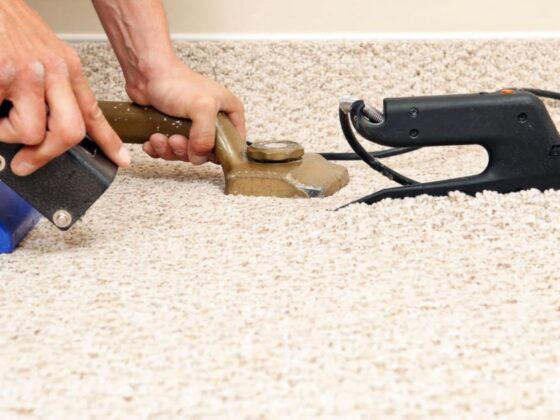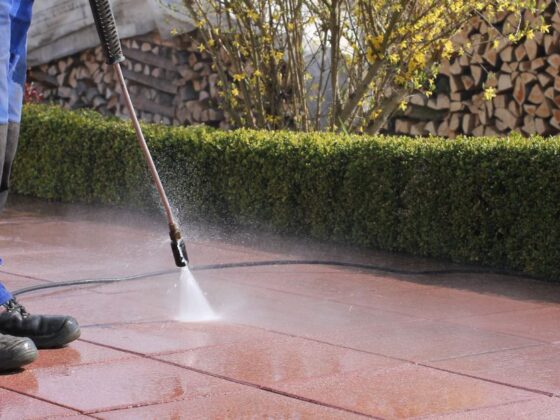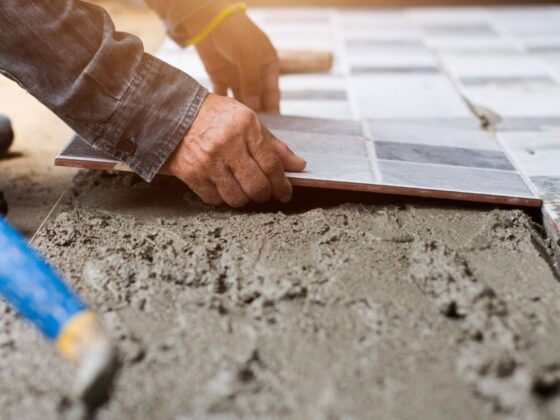Do you have noisy neighbors or traffic and want to create a quiet space for concentration or healthy sleep? Room soundproofing is easier than you think, as it works by absorbing sound waves. From fixing your home’s structure and installing special windows, ceilings, and flooring underlayment to cheap and easy DIY solutions, there are many ways to block out noise if you’re looking for How To Soundproof A Room.
Today, I’ll share different ways to make your room quieter and get a fully soundproof room so you can finally have some peace.
How To Soundproof A Room Completely?
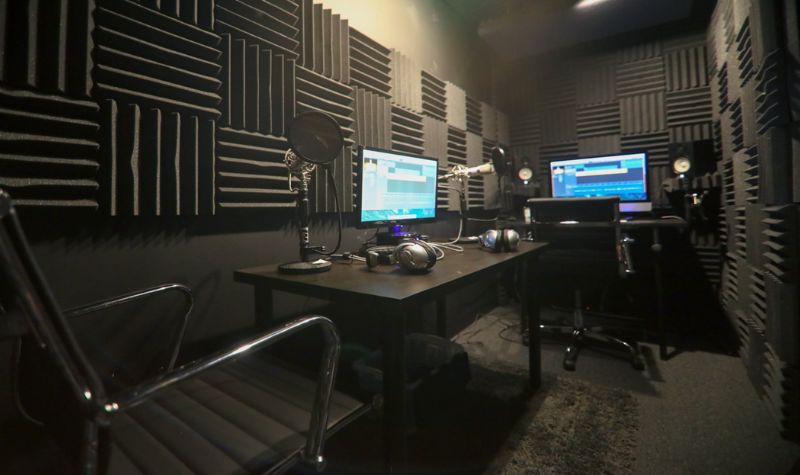
Noise can be annoying, whether it’s construction, kids, or coworkers chatting. To make your room soundproof, first, you’ll have to focus on the areas where noise gets in or out, like the doors, walls, floors, windows, and ceilings.
Please note that it’s impossible to make a homeroom completely soundproof. Even very quiet rooms have some background noise. Instead of trying to block out all noise, you can reduce it to a peaceful level. Below are some of the best and most affordable ways to soundproof a room, including home theater, office, bedroom, or any other space that you can even try for your home renovation ideas.
How To Identify The Noise Source In Room?
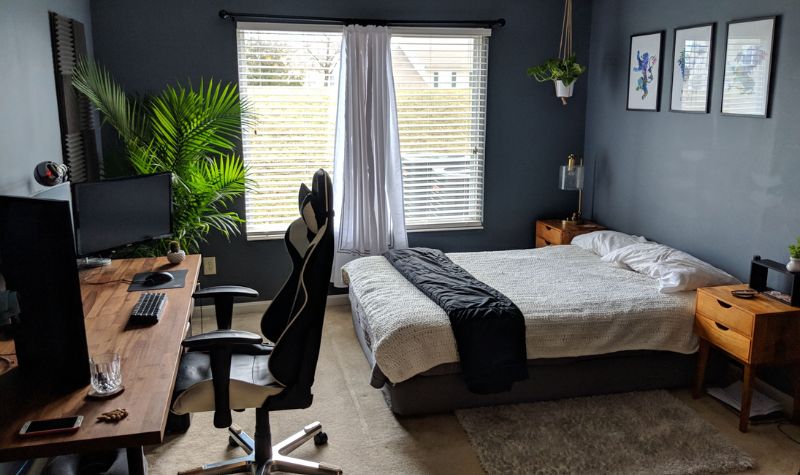
First, you’ll have to identify where the noise is coming from and what type it is. Sound can travel through the air like traffic and objects like walls, windows, doors, etc. Sound always takes the easiest path, moving through weak materials and open spaces.
To fix this, you need to know where these sound waves are coming from. Then, you can choose the right solution to block out the noise.
How To Soundproof Door?
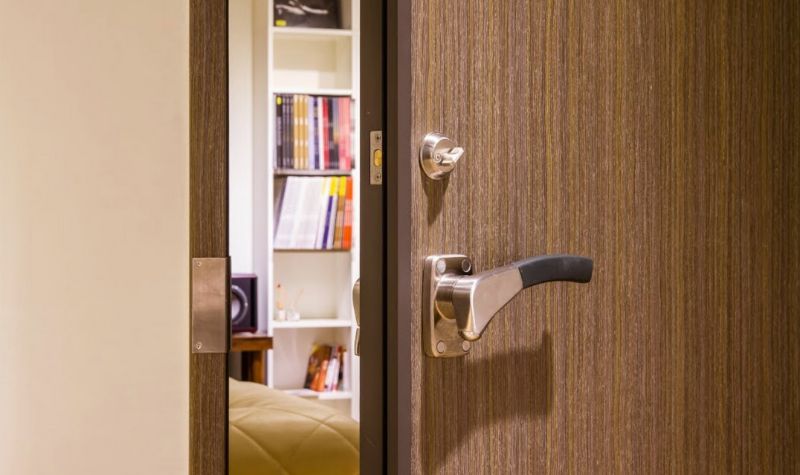
If the noise source is your door, and closing it isn’t helping, then door soundproofing can fix this. There are many ways to soundproof doors. Remember that using soundproof doors during your garage renovations can help maintain the inside temperature during the harsh weather.
1. Seal Gaps
Sound can seep through the edgy areas or unsealed gaps. To seal them, simply apply weatherproofing strips around the door to block sound. This is the best rental soundproofing method as it will create a tighter seal and can be easily removed when needed.
2. Door Sweeps
To block the sound coming through the gap under the door, use door sweeps or draft stoppers and place them at the bottom of the door. You can also make a DIY door draft stopper by filling a sock with sand or beans.
3. Hang Heavy Curtains
You can use blackout curtains to absorb sound that leaks through the door. You can also hang a soundproof blanket on the back of the door.
4. Install Soundproof Door
If you have a hollow door installed in your room, it’ll greatly let the sound pass through it. You can replace it with soundproof doors like solid-core, fiber, or sliding glass doors. These doors are durable and sealed well to reduce noise.
How To Soundproof Windows?
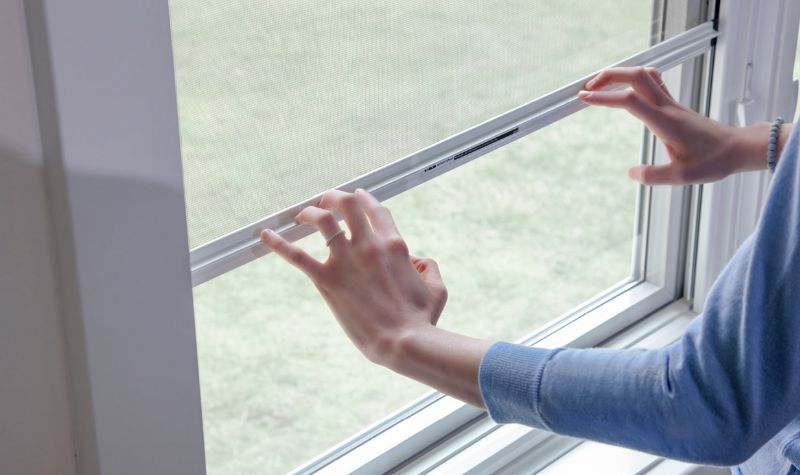
Windows can be one of the main reasons for getting the noise in or out. There are many ways for window soundproofing which can help you. If you want to soundproof your existing windows, consider these solutions.
1. Acoustic Caulk
Acoustic caulk remains flexible permanently as it is made of latex. If your windows are not installed perfectly, the tiny gaps around the edges might become the cause of noise in your room. To fix this, simply apply this acoustic caulk to these gaps.
2. Window Seals
Window stripping or window seals are used to keep it airproof. But over time, these seals on double-glazed windows can fail. Simply replace them to keep your windows air and soundproof.
3. Window Film
You can use this self-adhesive material sheet to apply on your window glass surface. These films reduce heat and decrease the sound level while offering privacy.
4. Window Shutters
You can use window shutters to help reduce traffic noise. They are basically solid window coverings that have a frame of horizontal rails and vertical stiles.
5. Cellular Shades
These fabric shades with a honeycomb construction offer soundproofing abilities by absorbing high-frequency sounds.
6. Noise Reducing Curtains
You can use sound-dampening curtains to reduce noise. Thick, heavy drapes can also be considered for this purpose. Another budget-friendly window soundproofing method is to cover them with thick blankets or quilted pads.
7. Window Inserts
Window inserts are also common these days as they are installed inside the window frame. These custom-fit plastic frames act as a secondary glazing effect.
Apart from these existing window soundproofing methods, you can also plant shrubs outside the window to block sound. If you have a budget for a newer one, consider applying soundproof windows.
You may install double or triple-pane windows with gas in between to help make your room quieter. Try to choose noise-reducing glazing. Please note that secondary glazing is a highly effective solution, but is not suitable for all windows.
How To Soundproof Ceiling?
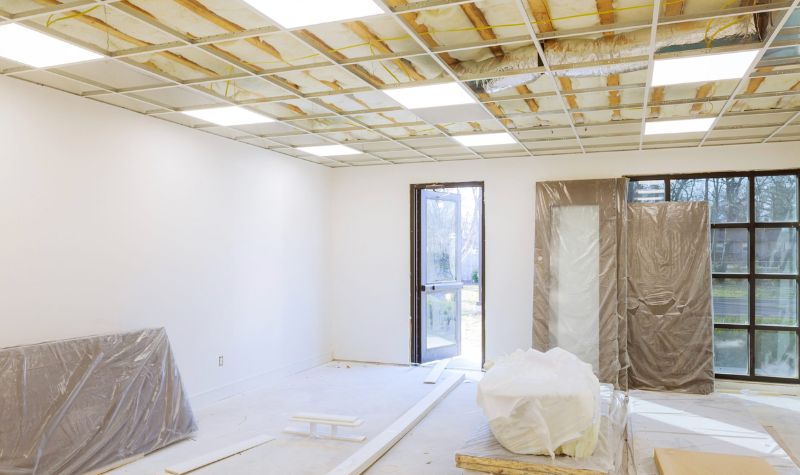
For ceiling soundproofing, you can use any of the methods below.
1. Spray Foam/Insulating Tape
You can use a flexible material like spray foam or insulating tape to seal any gaps in your ceilings to block vibrations, like footsteps.
2. Acoustic Ceiling Panels
If you have enough ceiling height, apply acoustic panels directly to the ceiling which is a permanent solution to a soundproof ceiling. These panels are hung parallel to the ceiling creating a dropped ceiling with a cavity space to absorb sound waves.
3. Draping Fabric Layer
This soundproof ceiling method for rentals is basically a nonpermanent option in which you can hang fabric over wires stretched between walls.
4. Drywall
Adding a second layer of drywall can also make the ceiling more soundproof. Simply, install it in a way that prevents the layers from touching.
How To Soundproof Floor?
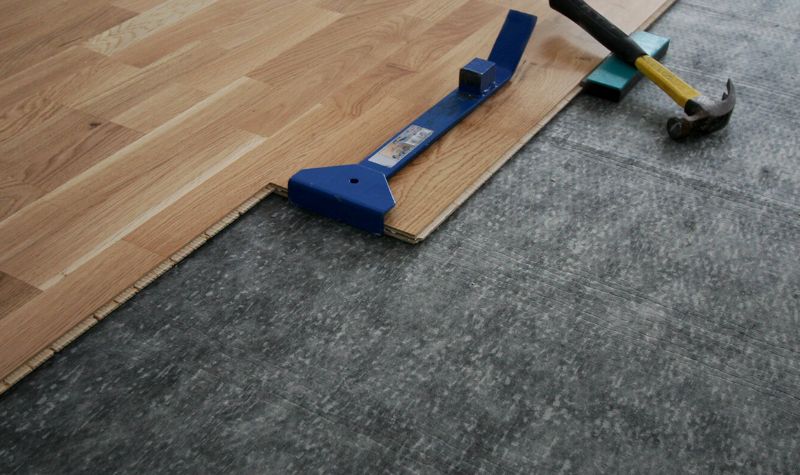
Floor soundproofing plays a big role when looking for how to soundproof a room. You can place carpet runners between rooms or in hallways and dense rug pads under the area rugs on the floort to absorb maximum sound. If these soft floor coverings don’t give the required results, consider the flooring underlayment method.
This effective method features a flexible material like felt, foam, tile, wood, or carpet to work as a flooring substrate under hard flooring. In gypsum tile underlayment, attach soundproof sheets to the subfloor before the finished floor. The crawl space insulation helps in absorbing sound waves. You can also install specialist soundproof insulation which can also be effective in blocking sound.
How To Soundproof Walls?
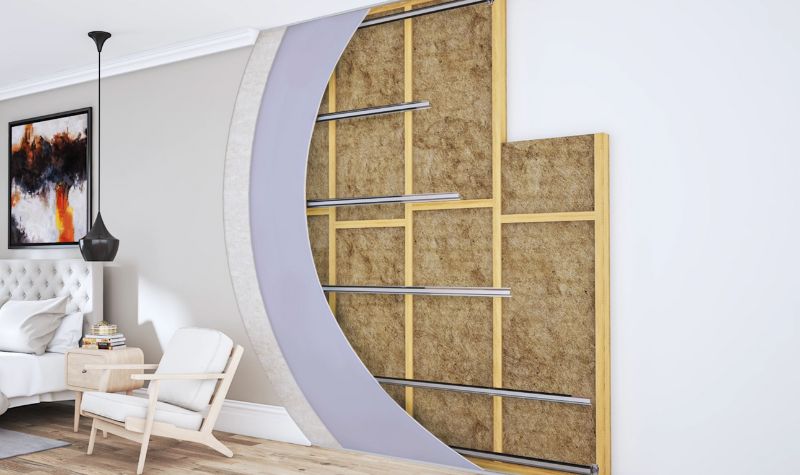
Wall soundproofing techniques involve using materials and insulation to reduce sound waves. You can use multiple home decor items too for room soundproofing. For example, Upholstered furniture like loveseats, throws, couches, sectional sofas, pillows, and armchairs can dampen the noises. These days, some top kitchen renovation ideas also include installing cabinets, shelves, or bookcases on the walls to reduce sound transmission.
If you’re still worried about noise getting in or out, try applying the following soundproofing materials.
1. Fiberglass Insulation Batts
If you have double-thick walls separating rooms in your home, try this method. Simply, install them inside the walls or to both sides of the wall for extra thickness.
2. Cavity Wall Insulation
You can place polystyrene into the void cavity between the walls for enhanced noise reduction.
3. Closet Cell Spray Foam Insulation
To fill gaps and small cracks in your walls, use this foam insulation spray. It sticks to the surfaces and stops the sound waves.
4. Soundproof Wall Panels
To make your walls quieter, you can add special boards like drywall either alone or with a frame to your internal walls.
5. Stud Wall Insulation
If you have space for a second wall, build it with a small gap in between. Fill this void cavity with insulation materials like rock wool to reduce noise and make the room quieter.
Apart from these techniques, you can also apply acoustic foam, acoustic panels, or drywall to reduce sound transmission in your space.
How To Soundproof A Room Cheaply?
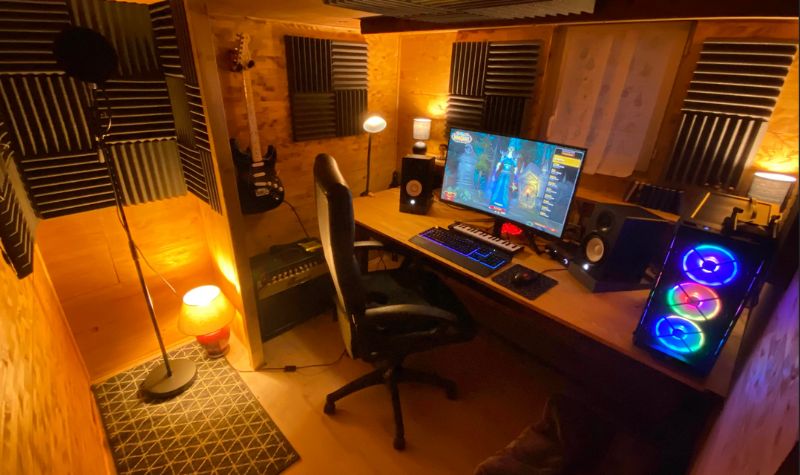
You can soundproof any space cheaply without making big changes. Try installing wooden shutters on windows and placing large furniture elements, like sectional sofas, bookshelves, cabinets, or built-in wardrobes to block sound.
Hanging sound-dampening curtains, blankets, or thick wallcoverings can also help. Seal door gaps and electrical sockets with acoustic caulk to stop sound leakage. Using carpets and rugs and planting hedges or shrubs outside the windows can also prevent noise from bouncing around.
Bottom Line
To make any room quieter, it is important to make sure that doors and windows are tightly closed to keep noise out. Consider adding soft items that absorb sound like carpet, foam, blankets, rugs, and other furniture elements.
This way you can create a peaceful space, even if you’re renting. If you still have any queries regarding how to soundproof a room, simply comment down and experts at smartfixhome.com will be there for you.
Frequently Asked Questions (FAQs)
How Can I Soundproof My Wall Cheaply?
You can use mass-loaded vinyl, acoustic panels, or add a second layer of drywall to reduce sound transmission. Sealing gaps and cracks with caulk or spray foam will also help.
How Can I Reduce The Noise In My Room?
Consider adding area rugs, upholstered furniture, and curtains to absorb sound. Seal gaps around doors and windows with weatherstripping or door sweeps.
Can I Soundproof My Ceiling?
Yes, try adding mass-loaded vinyl, acoustic panels, or a drop ceiling with sound-absorbing materials. Also, consider sealing gaps and cracks with caulk or spray foam for enhanced noise reduction.
How To DIY Soundproof A Room?
Start by sealing gaps and cracks around windows and doors, then add soft materials like thick curtains, rugs, and blankets. You can also add sound-absorbing materials like acoustic panels, mass-loaded vinyl, extra drywall, or insulation for extra quiet.
How Do You Soundproof A Room That Is Already Built?
To soundproof a room that’s already built, seal gaps and cracks, add mass with extra drywall or mass-loaded vinyl, and use acoustic panels. Additionally, upgrade doors and windows, add insulation, and use soundproofing blankets or sprays to absorb sound.



